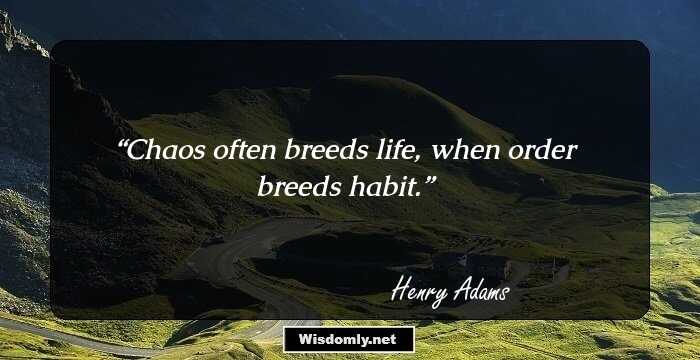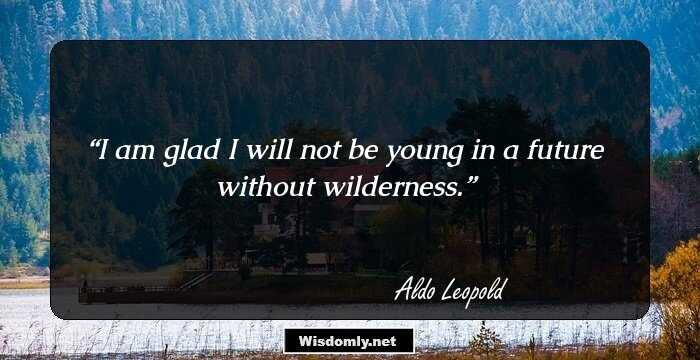56 Interesting Quotes By Stephen Jay Gould
One of the renowned names in the field of paleontology, evolutionary biology and history of science, Stephen Jay Gould, was noted for his theory on Pleistocene and Recent History of the Subgenus Poecilozonites in Bermuda. His other works included his thesis of Punctuated equilibrium and non-overlapping magisterial. Gould’s essays on evolution titled ‘This View of Life’ were published in the Natural History magazine. These essays were later released as best-selling books titled ‘Ever Since Darwin’, ‘The Panda's Thumb’, ‘Hen's Teeth’, ‘Horse's Toes’ and ‘The Flamingo's Smile’. His endless list of accolades includes the National Book Award, Paleontological Society Medal, and Phi Beta Kappa Award in Science and the National Book Critics Circle Award. Apart from his work in science, Gould was also an ardent fan of baseball and sabermetrics. His essays on baseball statistics were posthumously released as ‘Triumph and Tragedy in Mudville’. Here are some of the most interesting quotes from this legend of evolutionary biology.
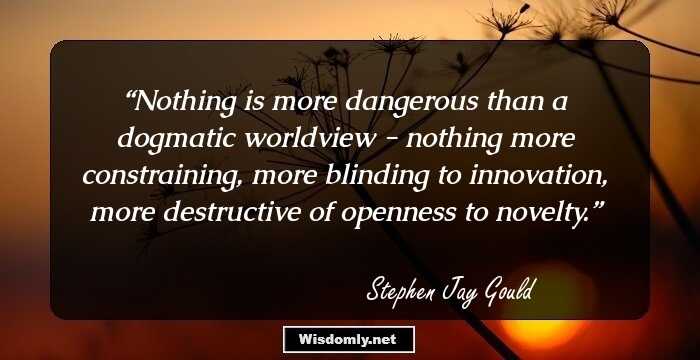
Nothing is more dangerous than a dogmatic worldview - nothing more constraining, more blinding to innovation, more destructive of openness to novelty.
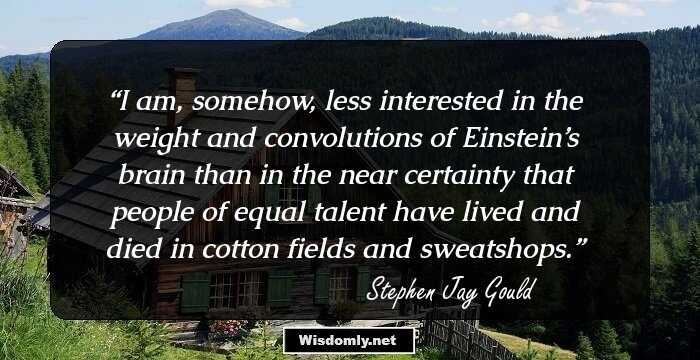
I am, somehow, less interested in the weight and convolutions of Einstein’s brain than in the near certainty that people of equal talent have lived and died in cotton fields and sweatshops.
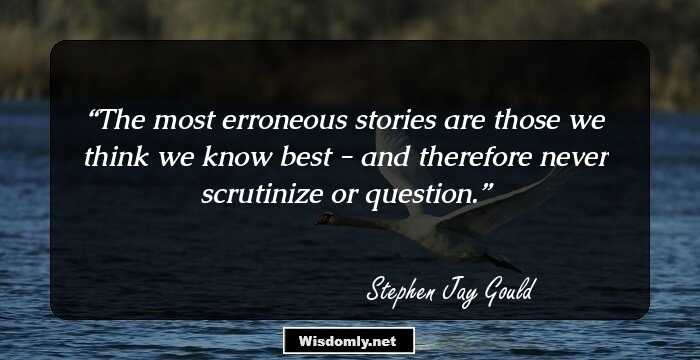
The most erroneous stories are those we think we know best - and therefore never scrutinize or question.

The most important tactic in an argument next to being right is to leave an escape hatch for your opponent so that he can gracefully swing over to your side without an embarrassing loss of face.
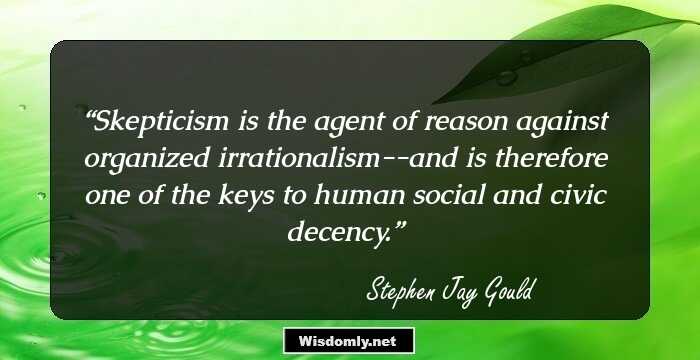
Skepticism is the agent of reason against organized irrationalism--and is therefore one of the keys to human social and civic decency.
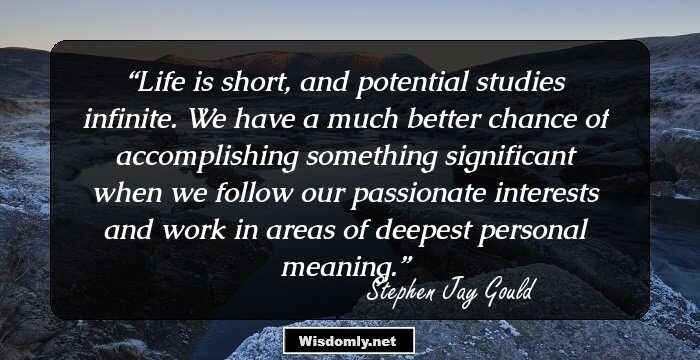
Life is short, and potential studies infinite. We have a much better chance of accomplishing something significant when we follow our passionate interests and work in areas of deepest personal meaning.
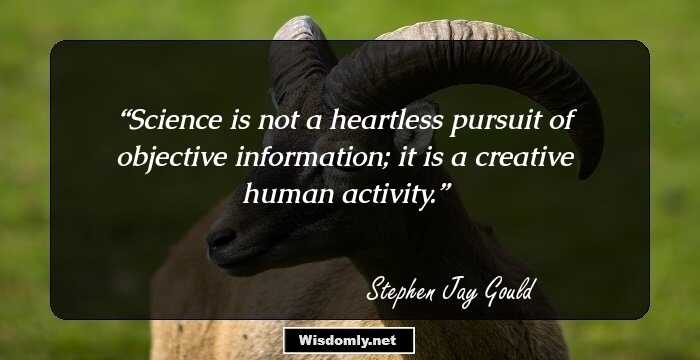
Science is not a heartless pursuit of objective information; it is a creative human activity.
![Homo sapiens [are] a tiny twig on an improbable branch of a contingent limb on a fortunate tree.](https://www.wisdomly.net/images/quotes/stephen-jay-gould-50195.jpg)
Homo sapiens [are] a tiny twig on an improbable branch of a contingent limb on a fortunate tree.
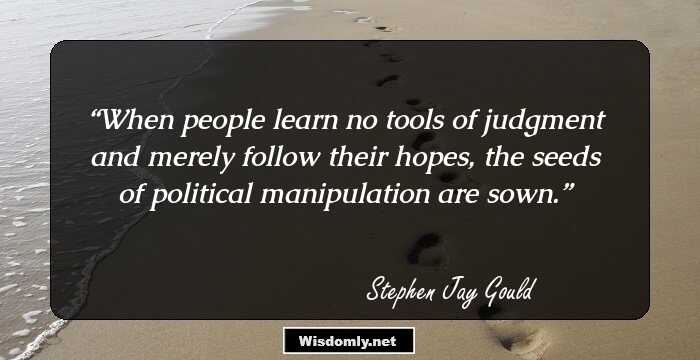
When people learn no tools of judgment and merely follow their hopes, the seeds of political manipulation are sown.
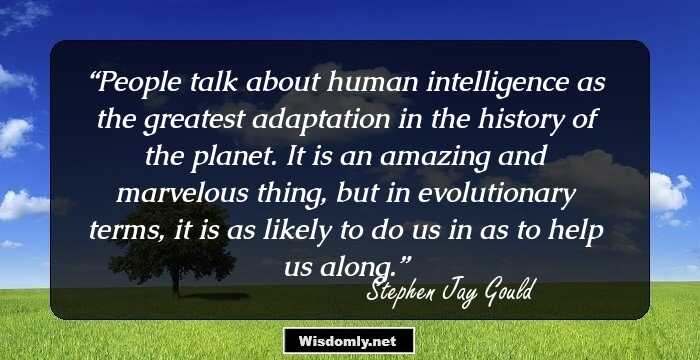
People talk about human intelligence as the greatest adaptation in the history of the planet. It is an amazing and marvelous thing, but in evolutionary terms, it is as likely to do us in as to help us along.
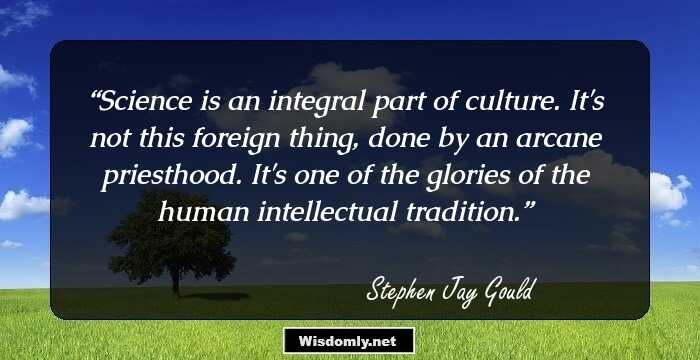
Science is an integral part of culture. It's not this foreign thing, done by an arcane priesthood. It's one of the glories of the human intellectual tradition.
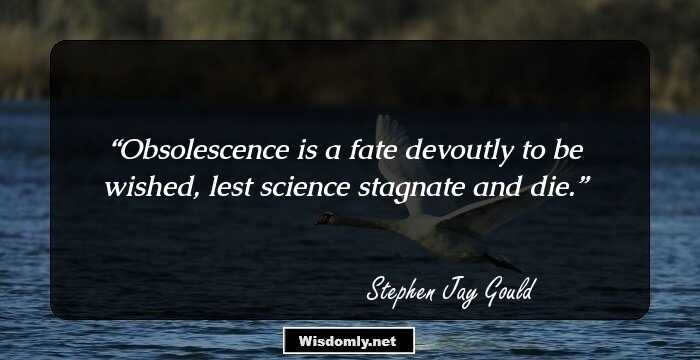
Obsolescence is a fate devoutly to be wished, lest science stagnate and die.
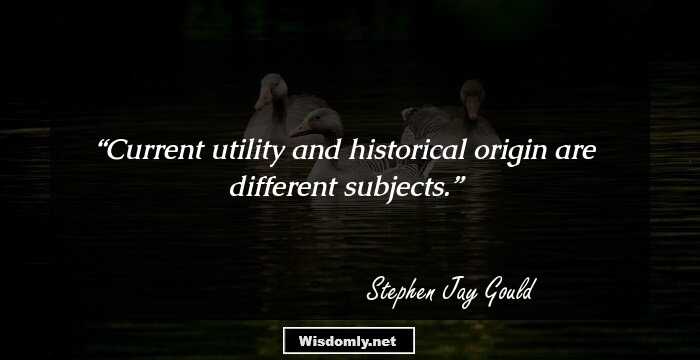
Current utility and historical origin are different subjects.
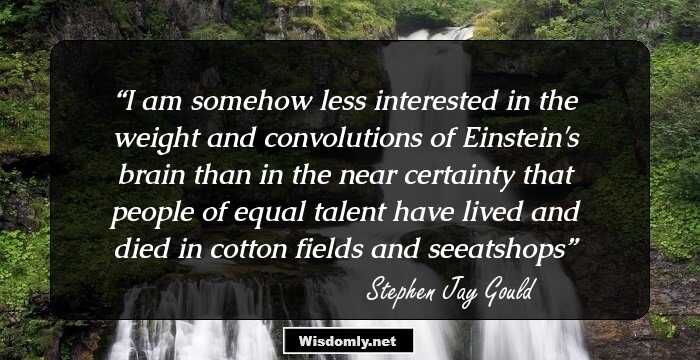
I am somehow less interested in the weight and convolutions of Einstein's brain than in the near certainty that people of equal talent have lived and died in cotton fields and seeatshops

Nothing matches the holiness and fascination of accurate and intricate detail.
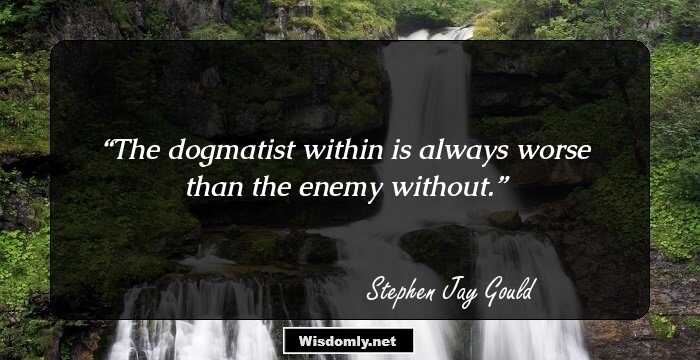
The dogmatist within is always worse than the enemy without.
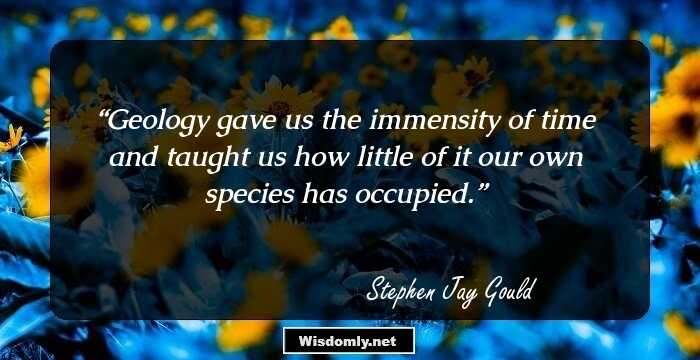
Geology gave us the immensity of time and taught us how little of it our own species has occupied.
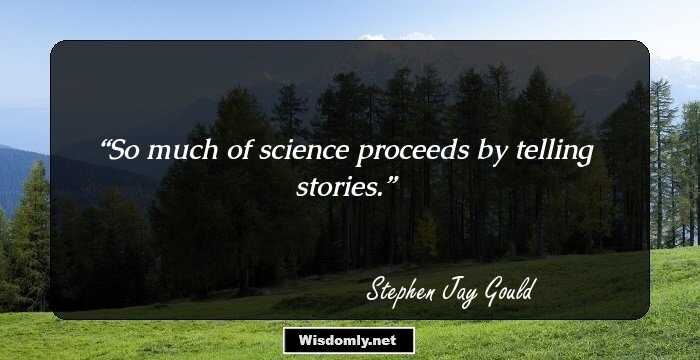
So much of science proceeds by telling stories.
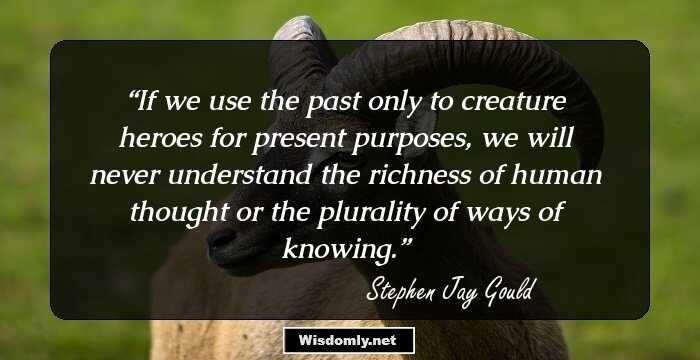
If we use the past only to creature heroes for present purposes, we will never understand the richness of human thought or the plurality of ways of knowing.
![The causes of life's history [cannot] resolve the riddle of life's meaning.](https://www.wisdomly.net/images/quotes/stephen-jay-gould-50205.jpg)
The causes of life's history [cannot] resolve the riddle of life's meaning.
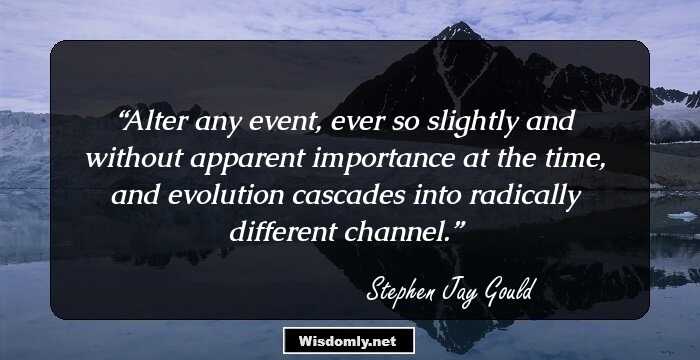
Alter any event, ever so slightly and without apparent importance at the time, and evolution cascades into radically different channel.
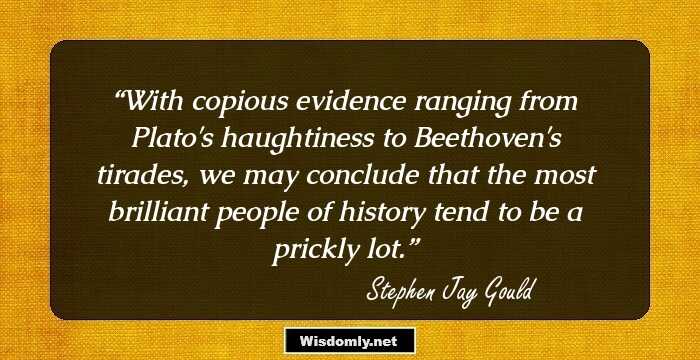
With copious evidence ranging from Plato's haughtiness to Beethoven's tirades, we may conclude that the most brilliant people of history tend to be a prickly lot.
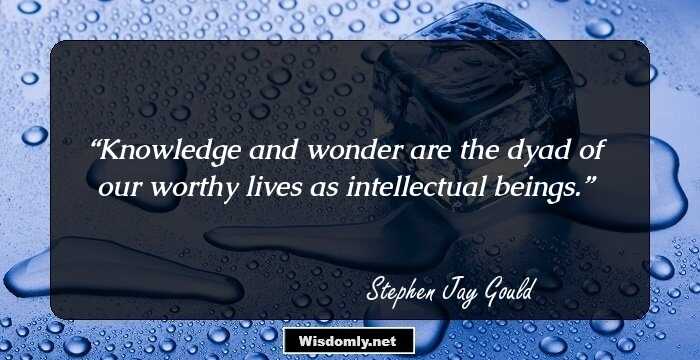
Knowledge and wonder are the dyad of our worthy lives as intellectual beings.
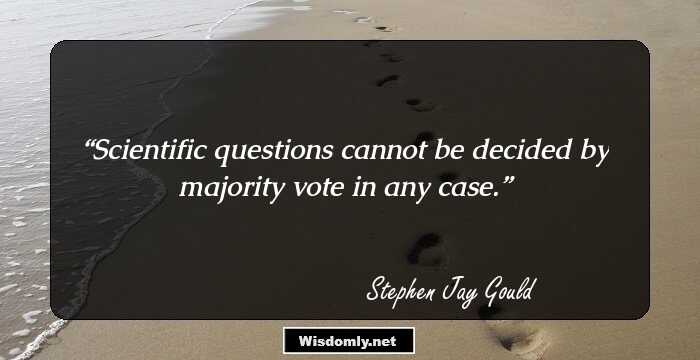
Scientific questions cannot be decided by majority vote in any case.
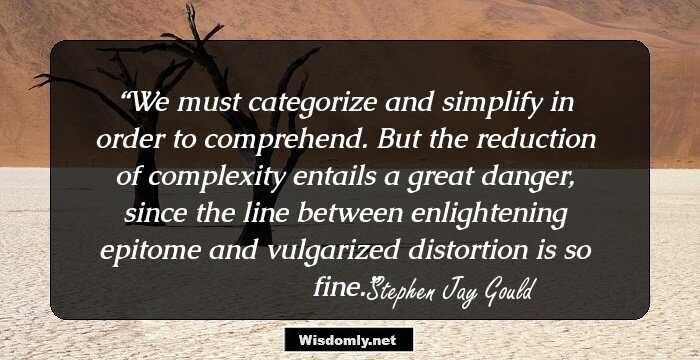
We must categorize and simplify in order to comprehend. But the reduction of complexity entails a great danger, since the line between enlightening epitome and vulgarized distortion is so fine.
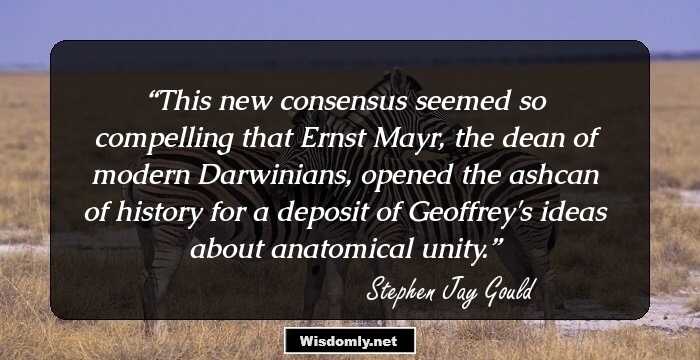
This new consensus seemed so compelling that Ernst Mayr, the dean of modern Darwinians, opened the ashcan of history for a deposit of Geoffrey's ideas about anatomical unity.
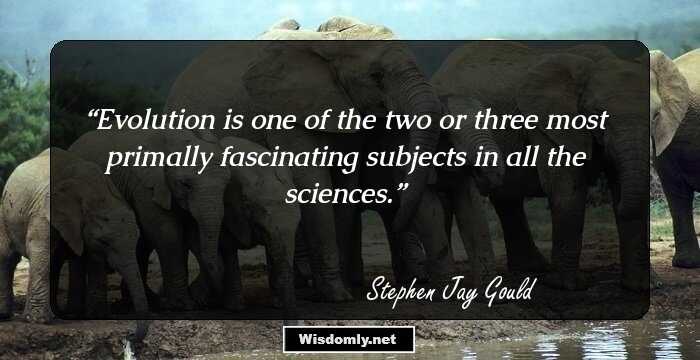
Evolution is one of the two or three most primally fascinating subjects in all the sciences.
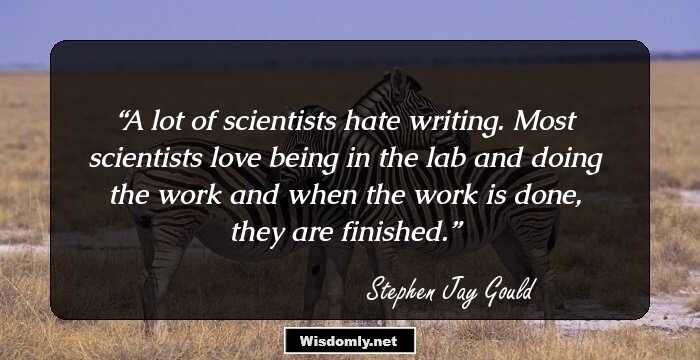
A lot of scientists hate writing. Most scientists love being in the lab and doing the work and when the work is done, they are finished.
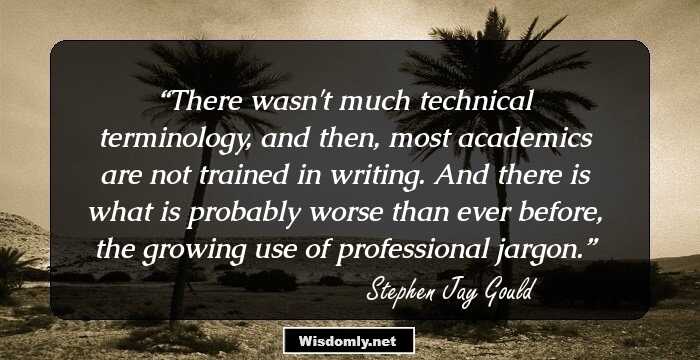
There wasn't much technical terminology, and then, most academics are not trained in writing. And there is what is probably worse than ever before, the growing use of professional jargon.
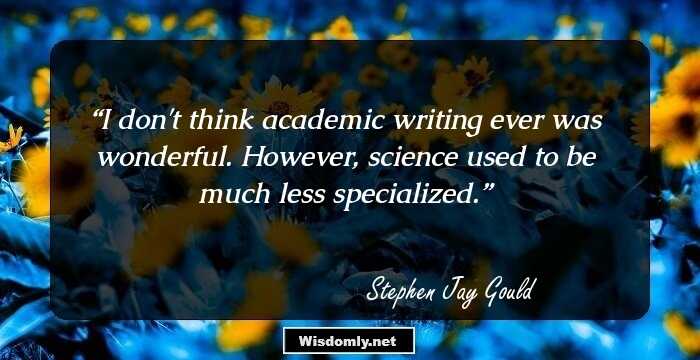
I don't think academic writing ever was wonderful. However, science used to be much less specialized.


